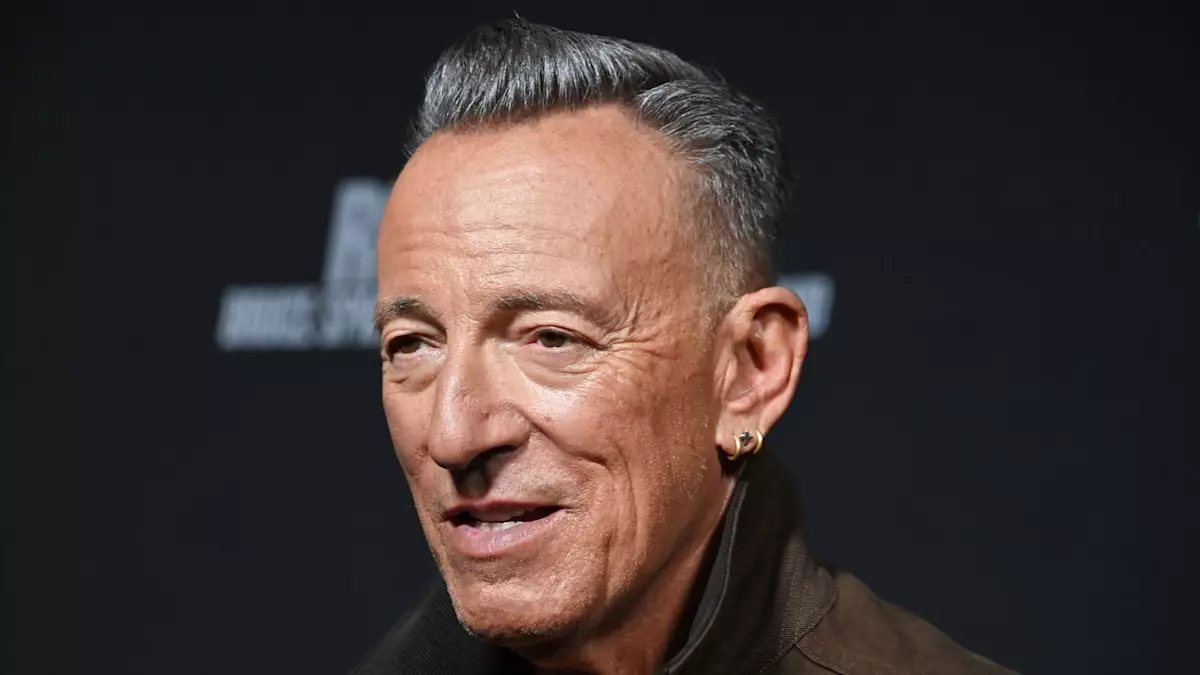The recent tragedy surrounding Liam Payne’s untimely passing serves as a somber reminder of the immense pressures that young artists face within the music industry. Alongside this heartbreaking news, acclaimed musician Bruce Springsteen has stepped forward to shed light on the often-overlooked battle of mental health that plagues many in the entertainment sphere. Both Payne’s death and Springsteen’s reflections demonstrate a troubling reality for many young performers who find themselves thrust into the spotlight at a young age.
In an era where success is often measured by social media presence and instant fame, the psychological burden on young musicians can be overwhelming. When Bruce Springsteen mentioned the “enormous pressures” faced by these artists, he highlighted a critical issue that deserves more attention. The rapid ascent to fame can strip young talents of their anchored identities, leading to a disorienting experience that can dangerously manifest in various forms, including substance abuse. Springsteen’s insights reveal a stark reality where many of these artists, ill-equipped to handle fame, can lose themselves amidst the chaos.
The pressure to constantly maintain a public persona can overshadow personal struggles. As Springsteen articulated, young artists often lack the emotional maturity and support systems required to navigate such tumultuous waters. The allure of fame and wealth can create an environment where self-care becomes secondary, as pressures to produce hit after hit can stifle creativity and emotional well-being.
Springsteen’s portrayal of the music industry as a “death cult” is alarming yet undeniably poignant. His reference to the early deaths of legendary musicians resonates deeply, illustrating a pattern that seems to repeat itself across generations. Artists, both celebrated and forgotten, often succumb to their battles in silence, and the industry, while promoting their art, appears complicit in their struggles.
These sentiments echo many artists’ experiences who have faced similar demons. The industry creates a seductive narrative around youth and fame that often overlooks the underlying vulnerabilities that come with such exposure. Springsteen’s remarks underscore a critical need for industry reform—specifically when it comes to mental health support for rising stars who are just beginning their journeys.
The topic of mental health, particularly in the realm of art, remains an ongoing conversation. Springsteen’s own admission of grappling with depression indicates that even the greatest talents can face overwhelming internal battles. His experiences are relevant not just for fans but for fellow artists who may find solace in knowing they are not alone in their struggles.
Liam Payne’s candid dialogue surrounding mental health, including battles with suicidal thoughts, further emphasizes the importance of conversations in breaking down stigma. By sharing their experiences, artists like Payne and Springsteen can contribute to a more supportive environment for others who may be facing similar challenges. Mental health advocacy within the industry is crucial—it fosters an ecosystem where dialogue can thrive, allowing young artists to find the help they need without fear of stigma.
Both Springsteen and Sharon Osbourne’s comments highlight a recurring theme: the music industry often fails its most vulnerable. Osbourne’s call for accountability—”Where was this industry when you needed them?”—resonates powerfully within an industry that has, historically, been slow to provide adequate support.
Creating robust support systems for young artists can involve mental health programs, mentorship initiatives, and communal spaces where they can freely express their struggles. The industry needs to shift from merely cultivating talent to nurturing the whole person, providing tools to help them thrive not only professionally but personally.
The recent tragedy has sparked a necessary conversation around the profound struggles faced by young artists in the music industry. As Bruce Springsteen’s insightful and candid reflections point out, it’s high time for the industry to prioritize mental health and well-being, ensuring that the musicians who shape our culture feel supported throughout their journeys. The hope is that through these discussions and reforms, future generations can find fulfillment in both their art and their lives.

Leave a Reply